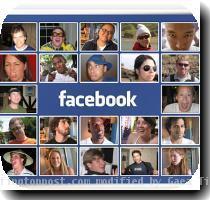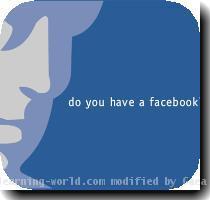Facebook, Wikipedia execs to brief Vatican, Catholic bishops about Internet, youth culture
By Nicole Winfield, APThursday, November 12, 2009
Facebook, Wikipedia execs brief Vatican on Web
VATICAN CITY — Vatican officials and Catholic bishops are getting a lesson on the Internet from Facebook, Wikipedia and Google executives as the church struggles to get its message out in the digital age.
A four-day symposium in the Vatican which opened Thursday also will address Internet copyright issues and hacking — including testimony from a young Swiss hacker and an Interpol cyber-crime official.
The meeting is being hosted by the European bishop’s media commission and is designed to delve into questions about what Internet culture means for the church’s mission and how the church communicates that mission to others.
Pope Benedict XVI has tried to bring the Vatican into the Internet age and launched a YouTube channel earlier this year. Officials say he also e-mails and surfs the Web.
But the Vatican’s online shortcomings have been woefully apparent.
Earlier this year, Benedict made clear he was disappointed that Vatican officials hadn’t done a simple Internet search to discover the Holocaust-denying comments of an ultraconservative bishop before the pontiff lifted his excommunication.
The outrage over the rehabilitation of Bishop Richard Williamson, of the traditionalist Society of St. Pius X, prompted Benedict to write a letter to his bishops admitting mistakes and saying that he had “learned the lesson” and that the Vatican would in the future pay greater attention to the Internet as a source of news.
French Bishop Jean-Michel di Falco Leandri, president of the European Episcopal Conference’s media committee, cited the Williamson affair in his remarks to the opening session, saying it exposed the institutional church’s communications problems.
He also cited the outcry over the pope’s own controversial comments that condoms are not the answer to Africa’s AIDS epidemic and could make it worse. He said the Catholic Church must learn how to communicate in a more effective, instantaneous way — recognizing how its pronouncements are taken in different cultures — if it wants to engage the faithful to spread its mission.
“You either know how to communicate or you don’t; you are either credible or not,” he said, according to his prepared remarks. “You are either alive, or a fossil; you either know the language of the Internet or you don’t, in which case you can’t communicate.”
The stakes are high, he said, noting that Evangelical Web sites in France attract far more users than Catholic ones, even though there are far fewer Evangelicals than Catholics in the country.
The reason? Unlike Catholic sites, which are merely extensions of parish bulletins, Evangelical sites “seek to reach Internet surfers, using the Internet as a tool and a vehicle for evangelization,” he said, tapping into a widespread concern at the Vatican about the competition for souls that Evangelical churches represent.
During the symposium, panels will discuss social networks, the Web generation, the church’s communication strategies, and whether the Internet is changing religious practices.
In many ways, the Internet is just the latest means that the Vatican has used to spread its message, starting with parchment, printing press, radio and television.
Pope John Paul II used mass media and information technology to get out his message, overseeing the 1995 launch of the Vatican’s Web site, www.vatican.va, which today includes virtual tours of the Vatican Museums and audio feeds from Vatican Radio.
Tags: Computing And Information Technology, Europe, Internet Technology, Vatican City, Western Europe, Youtube

